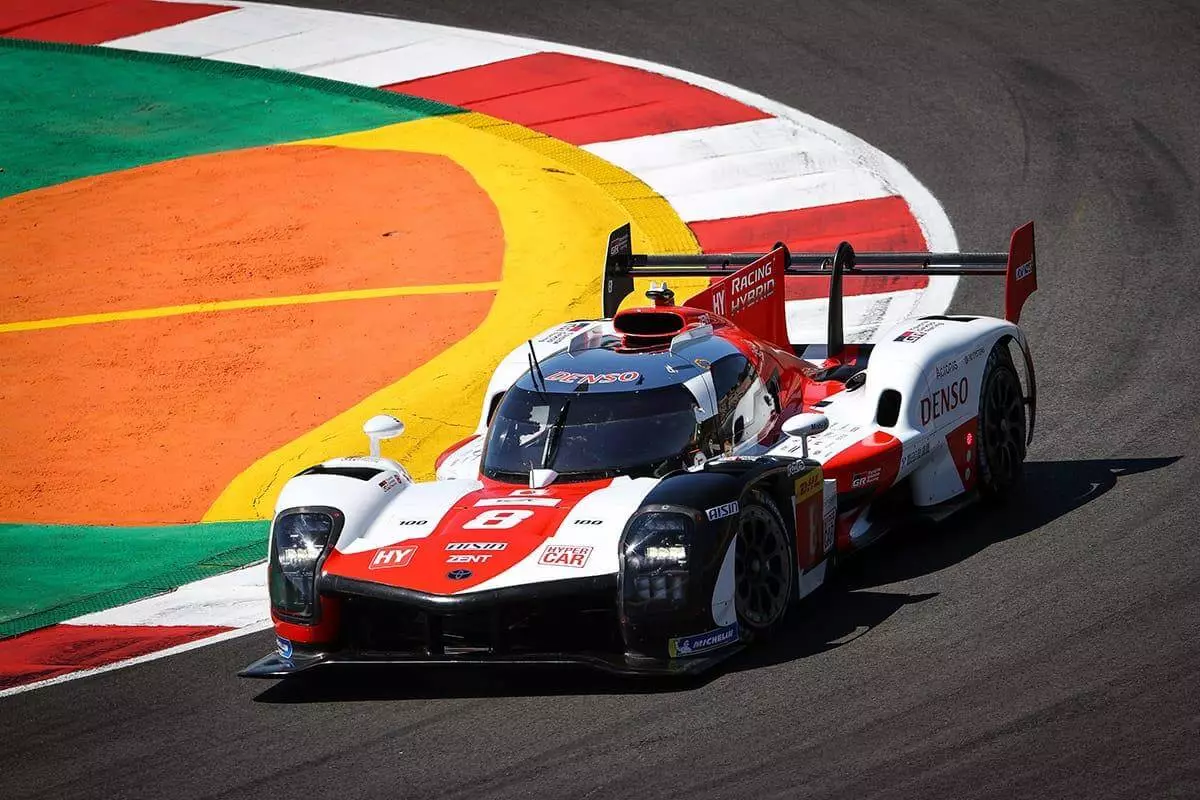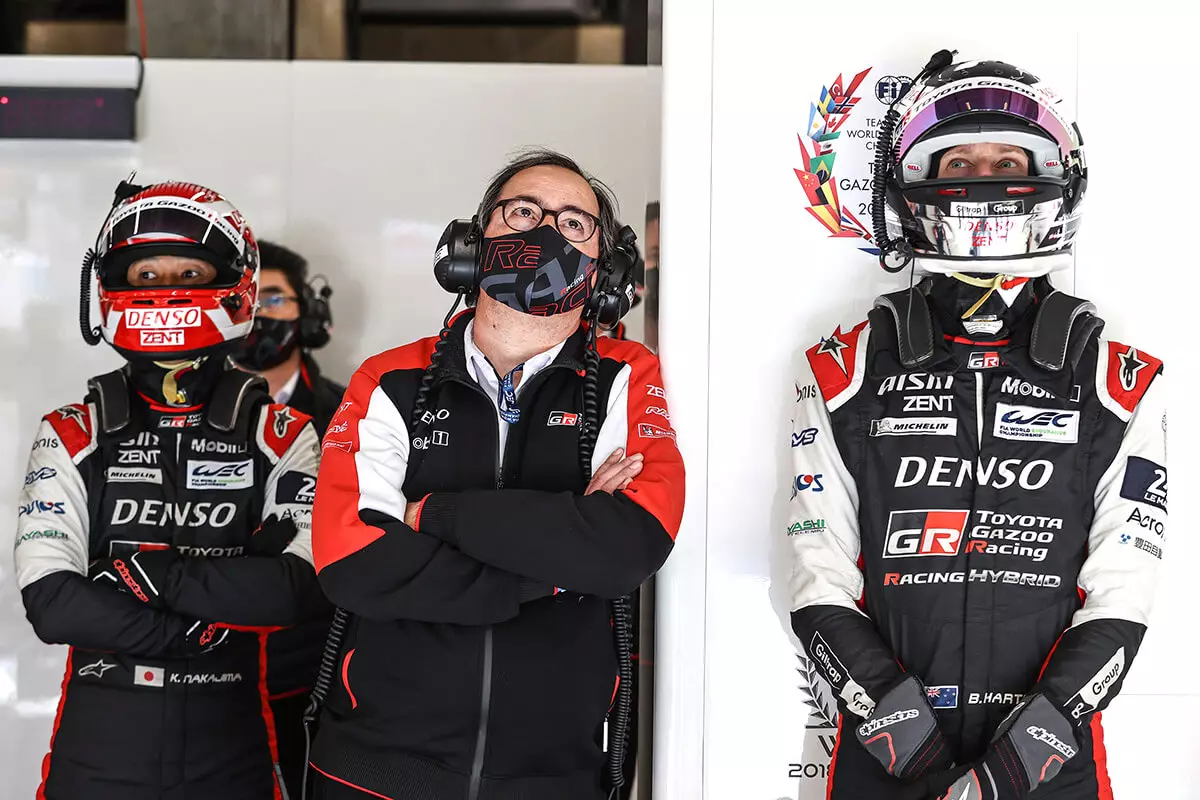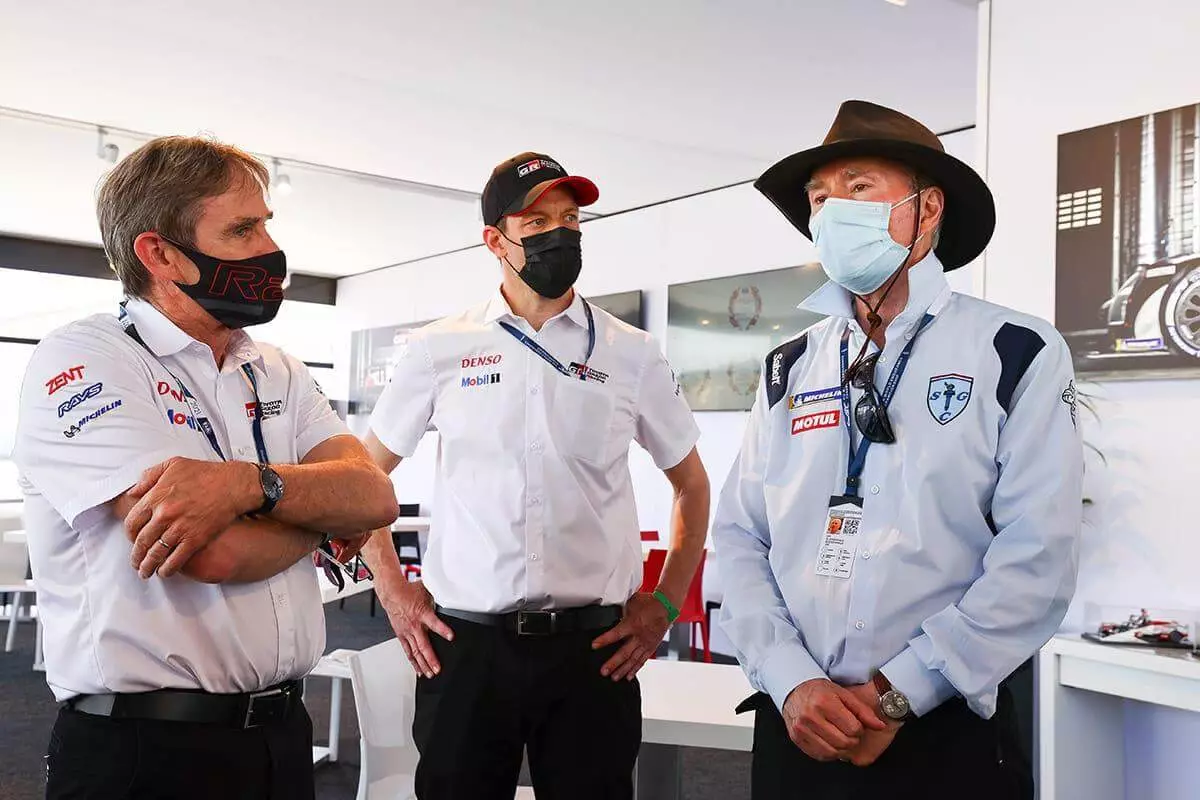Competing in its 100th race in the World Endurance Championship (WEC), the 8 Hours of Portimão were of special importance for Toyota. Therefore, we tried to discover the challenges faced by the Japanese team in a year in which the new Hypercar regulations became the “center of attention”.
There's nothing better than talking to two of the most responsible for Toyota Gazoo Racing Europe's operations in the endurance world: Rob Leupen, the team director, and Pascal Vasselon, its technical director.
From his position in relation to the new regulations to his opinion about the Algarve circuit, passing by the challenges the team will face, the two Toyota Gazoo Racing Europe officials “opened” the door a little for us to “take a peek” to the World Endurance Championship world.

New focus? the savings
Automotive Ratio (AR) — How important is it for Toyota to race?
Rob Leupen (RL) — It's very important. For us, it is a combination of factors: training, discovering and testing new technologies, and introducing the Toyota brand.
RA — How do you deal with the new regulations? Do you consider us a setback?
RL — For engineers and all those who love motorsports, each new regulation is a challenge. From a cost standpoint, yes, it can be a setback. But from an engineering standpoint, and after one to two years of new regulations, we're better able to look at new technologies. It's not a question of building a new car every season, but of optimizing it and also optimizing the team's performance. On the other hand, we are looking at other options in the future, such as hydrogen. We are also focusing on taking a more 'cost-conscious' approach, without neglecting the high level of technology, with more competitive cars in an equally competitive environment. And, of course, we have to prepare 2022 for the arrival of brands like Peugeot or Ferrari; or in the LMDh category, with Porsche and Audi. It will be a big challenge and a big championship, with big brands competing against each other at the highest level of motor sport.
RA — Regarding the development of the car, is there any specific objective to be reached between the beginning and the end of the season?
Pascal Vasselon (PV) — The regulations “freeze” the cars, that is, the Hypercars, as soon as they are homologated, are “frozen” for five years. It is important to emphasize that this category does not privilege development. There is some development, for example, in car configurations. If a team is having problems with reliability, security or performance, it can use “tokens” or “tokens” to be able to develop. However, the application has to be evaluated by the FIA. We are no longer in a LMP1 situation where all teams are progressing. Currently, when we want to develop the car we need strong justification and FIA approval. It's a completely different dynamic.

RA — Do you think the new regulations can help create cars that are more similar to conventional cars? And can we, consumers, benefit from this “shortening” of the technological gap?
RL — Yes, we are already doing it. We see it here through the technology of the TS050, through the improvement of the hybrid system's reliability, its efficiency, and that is coming to road cars step by step. We saw this, for example, in the last Super Taikyu Series in Japan with a hydrogen-powered combustion engine Corolla. It is technology that reaches the public through motor sport and can contribute to society and the environment. For example, we've already managed to significantly reduce fuel consumption while increasing performance.
RA — In championships like the WEC, which require great team spirit, is it difficult to manage the riders' egos?
RL — For us it is simple, those who are not able to integrate into the team cannot run. Everyone has to come to a compromise: that the car they drive will be the fastest on the track. And that means that if they have a big ego and just think about themselves, if they aren't able to work with their teammates, they will “block” the team, including engineers and mechanics. So going in with the “I'm the big star, I do it all myself” mentality doesn't work. It is necessary to know how to share.
Portimão, a unique tour in Europe
RA — Portimão is one of the few circuits where you can test at night. Is there another reason you came here?
PV — Initially we came to Portimão because the track was very bumpy and it was “our” Sebring. We were just coming to test the suspension and chassis. Also, it was much cheaper than the American circuit. Now the track has been repaved, but we keep coming because it's an interesting circuit.

RA — And the fact that you've already been here can be an advantage over other teams?
PV — It's always positive as we've already tested the track, but I don't think it's a big advantage.
RA — Toyota has already announced that the next step will be total electrification. Does this mean that, in the future, will we see Toyota abandon the WEC and enter an all-electric championship?
RL — I don't believe that will happen. When we talk about fully electric cars we are talking about a certain context, usually urban, where we can have a smaller car or with a shorter range of kilometers. I think a combination of everything is needed: 100% electric in the city, pure fuel in countries or areas where there is no access to electricity or hydrogen for large vehicles like buses or trucks. We cannot focus on just one technology. I believe that in the future cities will move more and more towards electrification, that rural areas will invest in a combination of technologies and that new types of fuel will emerge.
